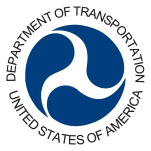Investigations
Exide Agrees to Shutdown Recycling Plant, Pay $50 Million in Cleanup Costs, and Admits to Felony Violations Involving Illegal Storage, Disposal, Shipment, and Transportation of Hazardous Wastes
Summary
On March 11, 2015, the United States Attorney’s Office (USAO), Central District of California, entered into a Non-Prosecution Agreement (NPA) with Exide Technologies, a large American manufacturer of lead-acid batteries, including automotive and industrial batteries. The NPA requires Exide to make a single payment of $3 million to the Residential Off-Site Correction Action Trust Fund, immediately stop battery recycling, permanently shut down its battery recycling facility in Vernon, California, and pay $50 million to clean-up the site and the surrounding neighborhoods. The NPA also requires Exide to admit to producing a host of hazardous wastes and admit to criminal conduct of illegal storage, disposal, shipment, and transportation of hazardous wastes. Exide produces hazardous wastes such as lead, cadmium, arsenic and volatile organic compounds. These environmental toxins have affected the surrounding neighborhoods for over 90 years. The direct costs of Exide’s compliance with the terms and conditions of this Agreement are estimated by the parties to be between approximately $108 and $133 million.
In 2014, the USAO had received information that Exide had engaged in the illegal transportation of hazardous materials. The facility receives approximately 40,000 batteries per day, which are initially crushed and separated for recycling into three primary component streams: acid, lead, and plastic. Exide admitted that it knowingly and willfully caused shipments of hazardous waste contaminated with lead and corrosive acid from the Vernon facility to Bakersfield, California. These shipments occurred numerous times over the past two decades, in violation of the federal Hazardous Materials Transportation Act. Exide also admits that it knowingly caused the transportation of hazardous waste contaminated with corrosive acid to a facility in Bakersfield, California, that was not permitted by the State of California, Department of Toxic Substances Control to receive corrosive hazardous wastes. Exide admitted that it caused these illegal transportations of hazardous waste a significant number of times over the past two decades, in violation of the federal Resource Conservation and Recovery Act.
This investigation was worked jointly with the United States Environmental Protection Agency Criminal Investigative Division, and the California Department of Toxic Substance Control.

 Department of Justice, Central District of California - Press Release
Department of Justice, Central District of California - Press Release